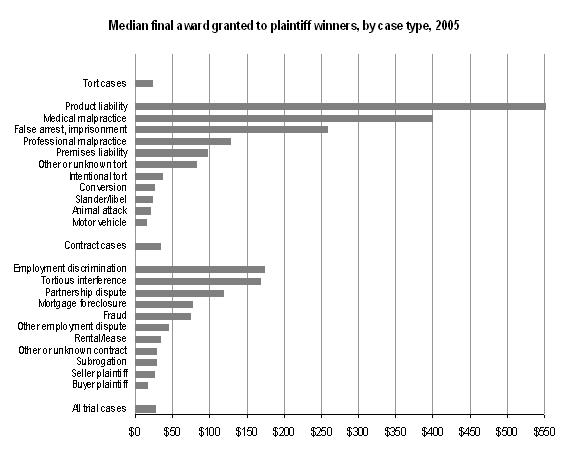BJS has sponsored periodic data collections on criminal trial and appellate litigation in state courts since 1986. BJS’s current collection is Criminal Cases in State Courts (CCSC), an effort to examine data on the processing of felony cases in state courts of general jurisdiction. The CCSC is collecting information on charges at initial filing and case termination, type of defense counsel, the race and sex of the defendant, how the case was terminated (e.g., dismissal, plea, or trial), and details on sentencing of convicted defendants.
Previously, BJS administered several different data collections on felony sentencing and case processing. These collections, while no longer active, provided important insights into the work of state courts.
From 1986 to 2006, the National Judicial Reporting Program (NJRP) collected felony sentencing data from a nationally representative stratified sample of state courts in 300 counties. Information included age, race, and sex, dates of arrest, conviction and sentencing data, and mode of conviction. Data were collected every 2 years during this period.
The State Court Processing Statistics data collection (formerly called the National Pretrial Reporting Program) was collected from 1988 to 2006 and again in 2009. SCPS provided data on the processing of persons charged with felonies in 40 jurisdictions representative of the nation’s 75 largest counties. These counties accounted for nearly half of all serious crime nationwide. The program tracked felony defendants from charging by the prosecutor until disposition of their cases (a maximum of 12 months for nonmurder cases and 24 months for murder cases). A wide array of data were obtained in SCPS, including:
- demographic characteristics of defendants
- arrest charges
- criminal justice status of the defendant at the time of arrest
- prior history of arrests and convictions
- pretrial release and detention status
- defendant's court appearance record
- information on rearrests while on pretrial release, if applicable
- type and outcome of adjudication
- and type and length of sentence.
BJS is currently redeveloping this project.
In 2010, BJS funded studies of criminal appeals in state appellate courts. The third-party report, Criminal Appeals in State Courts, includes estimates of the number of criminal appeals resolved in state courts in 2010 by type of case, whether the state or the defendant petitioned the court, severity of the offense, level of appellate court (intermediate or last resort), and final outcomes. It tracked reversal rates for the top ten issues commonly addressed on appeal and reversal rates by the most serious offense in the underlying trial case. The report examined variations in case processing times by type of court and whether the court reviewed the case on its merits. It also compared death penalty appeals with other appeals cases on these factors.



